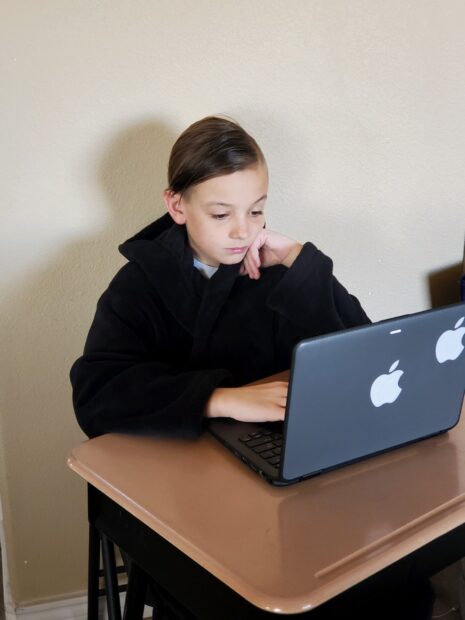When schools closed their buildings to slow the spread of COVID-19, Jaci Johnson knew she had to speak with her son’s teacher. She worried that Colton could fall behind in online classes.
“He’s always been a good student, but he never was excited about asking for help,” Johnson said.
But when Johnson spoke with Colton’s teacher, she learned that her son had taken more responsibility in his education and was asking questions in class. Now Johnson can oftentimes walk past her son’s room and hear Colton engaging as if they were in person.

“I sort of lowered my expectations for this year,” Johnson said. “I’m happy to see he developed a couple of good habits.”
Students taking more responsibility in their education is something that multiple parents have noticed in the past year, while students have missed class time due to the COVID-19 pandemic.
Johnson also said Colton has gotten better at planning out his week, something he now enjoys doing.
Johnson praised the work of the teachers at Lone Star Middle in Nampa and teachers at Nampa Online Virtual Academy, who she said have gone out of their way to check in on students. And while Colton is an outgoing kid, Johnson said the anonymity and ease of electronically asking questions to teachers while distance learning helps give students confidence in seeking help.
In the past year, Russell Mann has seen how his son, Judah, has become more independent. Judah, 13, is dyslexic and attends Wired2Learn Academy.
“Taking more responsibility had to happen,” Mann said. “He really stepped up.”
Mann said Wired2Learn uses an approach called project-based learning, where students work with their teacher to figure out a project that can meet multiple academic requirements (like a science experiment that also includes an essay on the topic).
Mann was proud of Judah’s recent project, which was on city planning. After a lot of independent research, he decided that mixed-use zoning would be a good solution to manage growth in a city. Judah’s research led to a presentation in school that was attended by Post Falls Mayor Ronald Jacobson.
Mann added that Judah has also learned a lot more about having care and compassion about other peoples’ problems. One of Judah’s classmates had COVID-19 and their family had to quarantine. Mann said Judah and his classmates were able to recognize that things in the pandemic are affecting other people and other families as well.
Jake Monahan said his son, Keyan, has a new appreciation for school and the routine of being in classes. Keyan struggled in online classes as he wasn’t able to maintain his attention at the computer.
“He was frustrated and couldn’t focus in.”
Keyan is thankful that Hobbs Middle School in Shelley is back in class, especially because the Monahans have family in the West Ada district who are not returning to full in-person learning until March 30.
“He doesn’t take it for granted,” Monahan said. “It’s not that I have to go to school. It’s that I get to.”
Monahan also gets to see changes in other students, as he’s a history teacher at Shelley High. And not only do the students at Shelley have more appreciation for their teachers, Monahan said the teachers are appreciative of the students.
“These guys keep us young. They keep you on your toes,” Monahan said. He added that students are more open with their teachers and are more willing to ask for help.
“I think we’re all a little bit more thankful for these interactions.”
Idaho Ed News also spoke with area parents about the things their kids have missed out on. Read more about that HERE.
